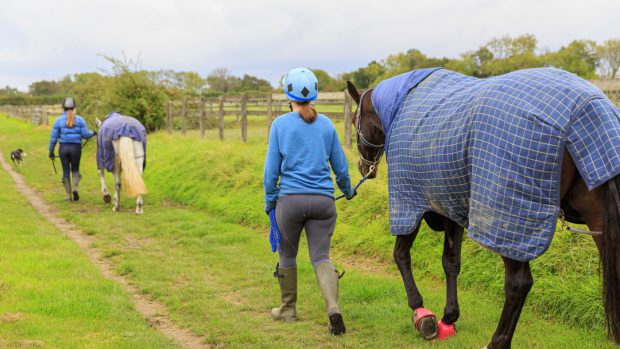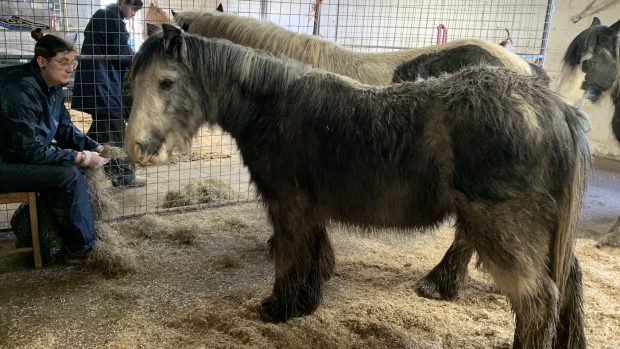Around 60 horses living on a disused rubbish tip on the outskirts of Dublin are to be rounded up, passported and microchipped.
The move is part of a long-term strategy for the 160-acre Dunsink site by the Irish Horse Welfare Trust (IHWT) and Fingal County Council.
Horse Sport Ireland is sponsoring the chipping and passporting of the horses.
Sharon Newsome of the IHWT said: “It is a very unsuitable environment for horses. There are limited grazing and water supplies and a lot of dangers.”
Although some of the horses and ponies living on the tip are owned, charities believe others have been abandoned.
They will all be seen by a vet and those that are not reclaimed will be taken into care by the IHWT.
The year-long Dunsink management plan will include creating a temporary feeding and watering station and offering horse care training for the young people who keep their horses on the site.
“We have run similar courses in Limerick that have been hugely successful,” said Ms Newsome.
Ruari O’Dulaing of Fingal council, said: “The council is committed to solving the horse problems in the area while recognising the horse culture that exists there.”
Elsewhere the Irish Draught Horse Breeders Association (IDHBA) has set up a confidential helpline for ID breeders struggling to take care of their horses in times of economic crisis.
IDHBA chairman Kevin Croke said: “The aim is to provide support to owners experiencing difficulties, not to remove horses from their care.
“We anticipate this service may be used quietly and discreetly to provide animals with a few bales of forage if we have difficult weather in February and March.”
But the Irish Society for the Prevention of Cruelty to Animals (ISPCA) says Irish horse welfare continues to be at crisis point.
The charity took in 22 horses in a 48-hour period last week and says it can barely keep up.
“We are fire fighting,” said chief inspector Conor Dowling. “We can only address the most serious situations and those complaints we are unable to get to weigh heavily on our minds every evening.”
This news story was first published in the current issue of Horse & Hound (3 February, 2011)




